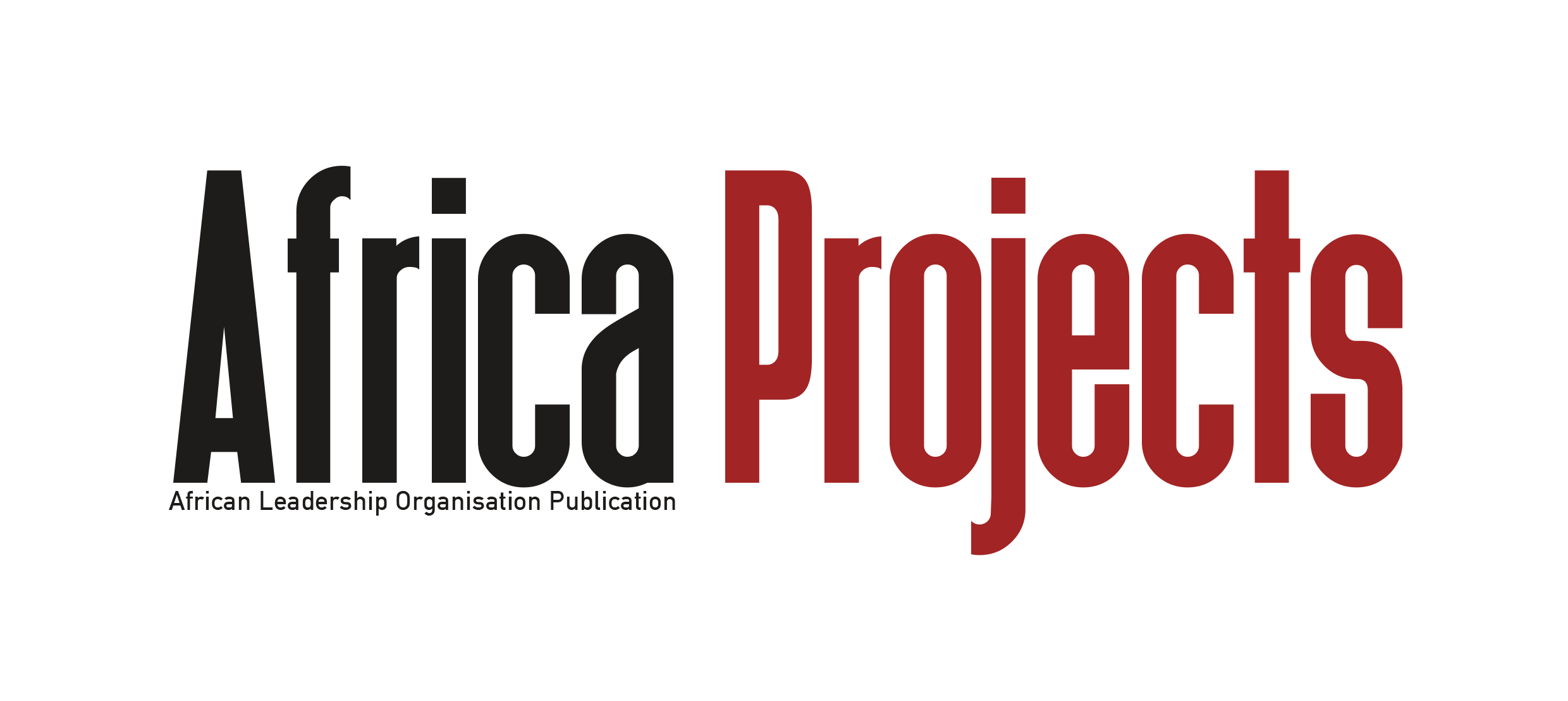- Home
- Features
- Startup Zone
- Projects
- Policies
- Shop
- Policies
- Projects
- Startup Zone
- Country Spotlight
- Analysis
- Tech
- Policies
- Projects
- Startup Zone
- Country Spotlight
- Analysis
- More
- Beyond the Kalashnikov: Africa’s Shift Toward Technology-Driven Warfare
- Afrail Express: Uniting a Continent on Rails
- AFRICA’S ENERGY CORRIDORS: CONNECTING POWER, PEOPLE, AND PROSPERITY
- Startup Lions Campus: Empowering Kenya’s Digital Generation
- L’Art de Vivre’s Le Paradis de Mahdia: Tunisia’s Model for Sustainable Luxury
- The Lobito Corridor: Rewiring Africa’s Trade Arteries Through Strategic Infrastructure
- AFRICA’S GREEN ENERGY TRANSITION: A BEACON OF HOPE FOR CLIMATE ACTION
- Dangote Refinery: Showcasing Africa’s Project Success Story
- AFRICA GREEN ECONOMY: ALL YOU NEED TO KNOW
- The Most Important Amicus Brief in the History of the World
- The Rise of Indigenous UAVs: Africa’s Drone Capabilities in Warfare and Surveillance
- AFRICA’S LARGEST OIL PRODUCERS: A COMPREHENSIVE OVERVIEW
- Beyond the Kalashnikov: Africa’s Shift Toward Technology-Driven Warfare
- Afrail Express: Uniting a Continent on Rails
- AFRICA’S ENERGY CORRIDORS: CONNECTING POWER, PEOPLE, AND PROSPERITY
- Startup Lions Campus: Empowering Kenya’s Digital Generation
- L’Art de Vivre’s Le Paradis de Mahdia: Tunisia’s Model for Sustainable Luxury
- The Lobito Corridor: Rewiring Africa’s Trade Arteries Through Strategic Infrastructure
- AFRICA’S GREEN ENERGY TRANSITION: A BEACON OF HOPE FOR CLIMATE ACTION
- Dangote Refinery: Showcasing Africa’s Project Success Story
- AFRICA GREEN ECONOMY: ALL YOU NEED TO KNOW
- The Most Important Amicus Brief in the History of the World
- The Rise of Indigenous UAVs: Africa’s Drone Capabilities in Warfare and Surveillance
- AFRICA’S LARGEST OIL PRODUCERS: A COMPREHENSIVE OVERVIEW
- Beyond the Kalashnikov: Africa’s Shift Toward Technology-Driven Warfare
- Afrail Express: Uniting a Continent on Rails
- AFRICA’S ENERGY CORRIDORS: CONNECTING POWER, PEOPLE, AND PROSPERITY
- Startup Lions Campus: Empowering Kenya’s Digital Generation
- L’Art de Vivre’s Le Paradis de Mahdia: Tunisia’s Model for Sustainable Luxury
- The Lobito Corridor: Rewiring Africa’s Trade Arteries Through Strategic Infrastructure
- Startup Zone
Top Insights
Land of Opportunity: Legal Frameworks That Make or Break Infrastructure Delivery
Africa’s infrastructure ambitions are within reach—provided the continent addresses the fundamental legal bottlenecks surrounding land acquisition, compensation, and regulation.

Africa’s infrastructure landscape holds immense promise, but its full potential remains constrained by complex land acquisition laws, compensation policies, and pervasive regulatory bottlenecks. The effectiveness of legal frameworks in these areas can spell the difference between stalled projects and transformative development. A thorough evaluation reveals both the critical challenges and the opportunities for reform that can unlock Africa’s infrastructural progress.
The Central Role of Land Acquisition Laws
Certainty and Security for Investors
Clear and predictable land tenure systems are the bedrock of successful infrastructure projects. In many African countries, ambiguous land rights, customary land tenure, and overlapping claims create significant risks for developers and financiers. These uncertainties often lead to delays, inflated costs, or outright project cancellation.
Challenges
- Land grabbing and conflicts: Weak legal protections can result in disputes, displacement of communities, and social unrest.
- Inadequate legal clarity: Fragmented or outdated laws fail to address emerging land use needs, especially with rapid urbanisation.
- Limited formal documentation: A significant portion of land remains under customary or informal rights, complicating transactions.
Opportunities for Reform
- Establishing unified land registries and digitised land records.
- Formalising land rights through transparent, community-inclusive processes.
- Creating dedicated dispute resolution mechanisms that are accessible and efficient.
Compensation Policies: Fairness and Effectiveness
Ensuring Just Compensation
Compensation policies determine how landowners and communities are remunerated when land is acquired for public or private infrastructure projects. Fair, transparent, and timely compensation is essential to garner community support and prevent social conflicts.
Challenges
- Inadequate valuation methods: Many countries lack standardised valuation systems, leading to under-compensation.
- Delayed payments: Bureaucratic hurdles often delay compensation, undermining trust.
- Displacement without adequate support: Communities displaced without proper resettlement and livelihood restoration face long-term hardship.
Opportunities for Reform
- Implementing independent, transparent valuation processes.
- Establishing clear timelines for compensation payments.
- Developing comprehensive resettlement and social support frameworks aligned with international best practices.
Regulatory Bottlenecks: Navigating the Red Tape
Impacts on Project Delivery
Regulatory hurdles—such as lengthy approval processes, inconsistent enforcement, and overlapping agencies—cause delays and increase costs. These bottlenecks discourage private investment and stall critical projects.
Key Challenges
- Prolonged approval procedures: Multiple permits and unclear procedures can extend project timelines by years.
- Inconsistent enforcement: Variability in regulatory application fosters uncertainty.
- Corruption and lack of transparency: These undermine trust and inflate costs.
Reform Strategies
- Streamlining approval processes through single-window clearance systems.
- Strengthening institutional capacity and transparency.
- Creating clear, predictable regulatory environments that align with international standards.
The Interplay of Legal Frameworks and Infrastructure Outcomes
A robust legal environment in land acquisition, compensation, and regulation directly correlates with successful infrastructure delivery:
- Enhanced investor confidence: Clear laws reduce perceived risks, attracting both domestic and foreign capital.
- Reduced delays and costs: Clear procedures and dispute mechanisms streamline project timelines.
- Community buy-in: Fair compensation and participatory land processes mitigate conflicts and resistance.
- Sustainable development: Proper regulation ensures environmental and social considerations are incorporated, securing long-term project viability.
Case Studies and Lessons Learned
Kenya’s Land Laws and Infrastructure Growth
Kenya’s recent efforts to reform land laws—such as digitising land registries and clarifying land rights—have contributed to smoother implementation of projects like the Standard Gauge Railway. However, lingering delays in compensation and land disputes highlight ongoing challenges.
South Africa’s Land and Compensation Policies
South Africa’s progressive land reform policies aim to balance restitution, redistribution, and tenure security. Yet, regulatory complexity and slow legal processes sometimes hinder infrastructure projects, emphasising the need for streamlined legal pathways.
Ghana’s Land Acquisition Reforms
Ghana’s efforts to modernise land acquisition laws and establish land commissions have improved transparency, but community resistance and compensation disputes still pose hurdles.
Moving Forward: Policy Recommendations
- Legal Reforms: Harmonise land laws across jurisdictions, formalise customary land rights, and establish clear frameworks for land use planning.
- Compensation Mechanisms: Adopt internationally recognised valuation standards, ensure timely payments, and implement comprehensive resettlement policies.
- Regulatory Streamlining: Simplify approval processes, establish single-window systems, and enhance institutional capacity.
- Community Engagement: Involve local communities in decision-making to foster trust and shared benefits.
- Capacity Building: Strengthen legal and regulatory institutions with training and resources to enforce laws effectively.
Conclusion
Africa’s infrastructure ambitions are within reach—provided the continent addresses the fundamental legal bottlenecks surrounding land acquisition, compensation, and regulation. Strengthening these frameworks will foster a more predictable, fair, and efficient environment for infrastructure investment and delivery. As governments, investors, and communities collaborate to reform these critical areas, Africa can unlock its vast land and resource potential, paving the way for sustainable growth, social inclusion, and economic transformation.
The time to act is now. Building a resilient and inclusive infrastructure backbone depends on laws that make development work for all—landowners, communities, investors, and governments alike.
Recent Posts
Related Articles
Africa’s Mega Dams: Balancing Development and Environmental Needs
Large-scale hydropower dams have become central to Africa’s development strategy as governments...
ByafricaprojectJanuary 29, 2026AfCFTA and Its Impact on Africa’s Infrastructure Policies
The African Continental Free Trade Area (AfCFTA), which came into force in...
ByafricaprojectSeptember 25, 2025The Battle Over Energy Subsidies in Africa: Who Wins and Who Loses?
Energy subsidies have long been a contentious topic in African economies, representing...
ByafricaprojectSeptember 24, 2025Pipeline Politics: The Future of Africa’s Oil and Gas Infrastructure
Africa’s oil and gas sector is undeniably at a pivotal crossroads, with...
ByafricaprojectSeptember 22, 2025













